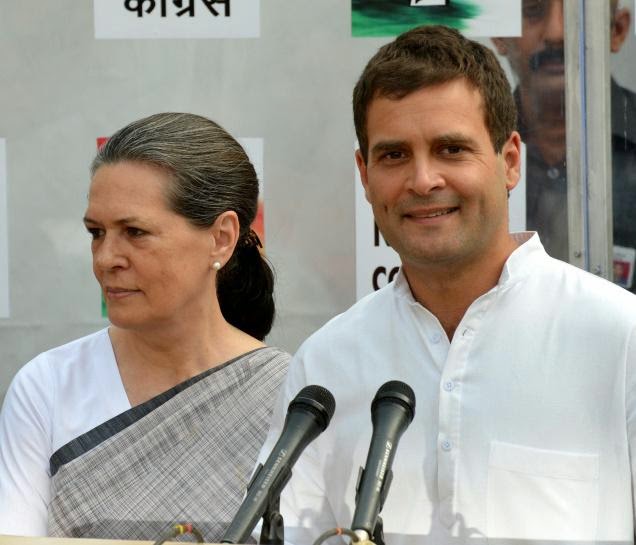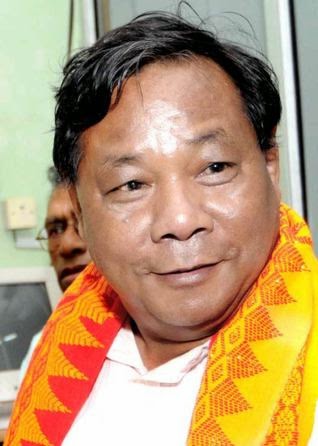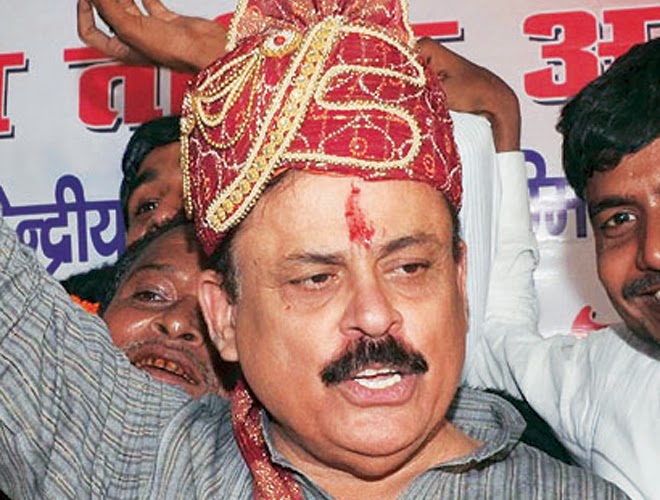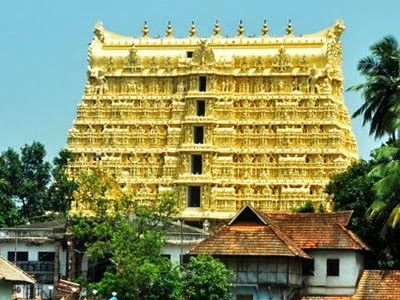The first Pakistan (Pak-A) said hello with the warmest smile, while the second (Pak-B) ordered the Hindu reporter of The Hindu out of the country (Snehesh Alex Philip of Press Trust of India was also asked to leave, no reasoning was disclosed).
All the cliches in MM’s closing report (see below) are there for the consumption of sophisticated folks to think over a cup of (green) tea while sadly nodding in agreement.
There is a comment from a (presumed) left liberal as to how India has now become just like Pakistan (presumably Pak-B). That leads to a very interesting and curious point –
the quota of (2) Pakistani journalists (to be stationed in India) has never been utilized – hence the above point is not really testable/verifiable. OTOH many Modified readers are in a nasty mood, they keep asking why she does not have anything to say about the Hindus in Pakistan (MM was frog-marched out because she talked to a Baloch leader).
Indeed Meena madam, what about the Hindus? Reports from the Pakistani National Assembly state that Hindus are departing by the thousands every year.
Ethnic cleansing leading to population transfer has happened during the past partitions and in-between (alternatives being forced conversion and/or genocide). Sad to say that the future of these impoverished people – unlike elite expats such as Meena Menon – will be only a little less dark in India as it was back home.
..Around
5,000 Hindus migrate from Pakistan to India and other countries every
year due to religious persecution, ruling Pakistan Muslim League (Nawaz)
lawmaker Ramesh Kumar Wankwani has told the Pakistani National
Assembly…..”During last two months, six incidents of religious
desecration happened only in Sindh province. In all incidents, religious
books of Hindu minority and their places of worship were burnt,” said
Wankwani, who also heads the Pakistan Hindu Council.
The Pakistani Press concludes that the expulsions of Indian journalists were a subtle way for the Deep State to tell PM Sharif to not get any ideas about “normalizing” relations with India. The super-courageous Mian Sahib did not quite get the memo and was one of the first heads of state to congratulate PM-elect of India and also invited him for a state visit. Things may not be as one-sided as it seems. There is always a little hope, that South Asia will be a better place for all its denizens.
…
As he looks at me with hope, my camera gives me away. He thinks I am a
tourist, which means dollars. He grins in disappointment when I tell him
I am from India, but he’s excited to have met one. Even the female
security guard asks me a lot of questions about India. In the women’s
section in the shrine, many of them tell me it is an honour to have met
someone from their favourite nation. Coming right after I was told to
leave Pakistan in a week’s time, it couldn’t have felt better.
This was how it was when I left for Pakistan in August 2013. After
landing in Islamabad around midnight, we went to buy a can of drinking
water from a chemist, where we experienced our first taste of welcome.
From then on there was practically no one who didn’t exude charm or
warmth; the sinister exceptions came much later. With a visa that was
restricted only to Islamabad, and which had to be renewed every three
months, the paperwork was enormous; the many trips to the External
Publicity (EP) Wing, our contact point, were meant to tire us out. Even
there they were nice, always ready to offer a cup of tea and words of
solace that the visa would be renewed.
Right from the time I reached, there was a constant flurry of activity
and plenty of news. The All Parties Conference which endorsed a dialogue
with the Taliban, the weeklong series of blasts in Peshawar, especially
the attack on the church which killed over 80, the sporadic attacks on
the media, the sectarian killings, the blasphemy cases, the Mumbai
attacks trial, Parliament and Supreme Court, apart from political party
press conferences and other meetings and seminars, all kept me busy.
In December, the federal government decided to prosecute the former
military dictator, General (retd.) Pervez Musharraf, slapped with
charges in many high profile cases but who had secured bail in most of
them. Covering the trial in the special court meant getting a pass which
was graciously granted to me. I had access to Parliament as well, with
my pass usually ready on the first day of the many sessions I attended.
There was the Jamaat-ud-Dawa’s Hafiz Saeed who had held some rallies,
the really large one being on ‘Defence of Pakistan’ day, and directed
largely against India and the United States. Covering the Mumbai attacks
trial was initially easy, with the lawyers and the prosecutor more than
eager to talk to you. Then, one day, I was told not to call anymore for
information as my reports were causing trouble.
A word on my spooks. Being an ardent admirer of the Thompson Twins in
Hergè’s classic Tintin comics, I didn’t think that I would have my own
experience with the bumbling duo. I first saw them at the visa office
where they made it a point to get so close to me that they almost bumped
into me. It soon became a regular affair. They didn’t stand outside my
house till the last two days, but always met the people I did interviews
with and asked them questions about me. My friends too were not spared.
They were keen on knowing whether my discussions had centred on the
Pakistan Army or defence, which was hilarious; with friends there are so
many other things to talk about.
The bumbling moment came when they followed my husband and I on Trail
six, a charming hike up the Margalla Hills behind the Faisal Mosque. It
was obvious that it was their first hike as they kept asking the others
on the trail the way back and thought we would return that way too. They
gave up halfway and decided to wait for us to return. At the top we
found a path that traversed all the way to Pir Sohawa, the highest point
in the hills and decided to follow it. I don’t know how long they had
waited for us in the blazing sun with no trees for shade and I am sure
they didn’t take to that kindly.
Early on in January, I was warned by the EP wing that my visa would not be renewed.
There was no reason given. I used to submit applications at regular
intervals to visit other parts of Pakistan such as Taxila, Lahore,
Peshawar and Mohenjo-Daro after the Sindh government had invited us to
cover the festival, but there was no reply.
But it was in March, after I had interviewed Mama Qadeer Baloch who had
walked over 3,000 km from Quetta to the capital with his small band of
followers, most of them relatives of missing persons, that things became
serious. A top official grilled me for an hour on why I had done an
interview which was “anti-Pakistan” and then demanded to see my notes.
He accused me of jeopardising my chances of a visa renewal with such
stories, and advised me to write on art and culture instead. Amused, I
told him that art and culture were limited in Islamabad and that I had
done my best. If the government was so keen that I cover only these
subjects, it should have sent me to places of great cultural interest in
Pakistan like Taxila, which it hadn’t. I had interviewed Abida Parveen,
a personal favourite, on her astounding new album, “Shah Jo Raag,” done
a feature on Haroon, the genius behind “Burka Avenger,” and other
stories.
One of the first people I had met was Shoaib Sultan Khan, a bureaucrat,
whose inspiring rural development initiatives and connections with India
made for a great article. He will remain for me the most interesting
person I met there and will leave behind a legacy of lasting ties with
rural communities in both countries. For a story on the oral history
project, on Partition, being collected by the Citizens Archive of
Pakistan (CAP), I had met Khalid Chima and his wife, Nasreen and Dr.
Naeem Qureshi, and it was among the memorable meetings I have had.
Nasreen lamented that she belonged to a really small minority which
still believed in secular values and that they were more endangered than
anyone else in Pakistan.
The venerable Abid Hassan Minto had the most
interesting memories of the Left movement and he jocularly accused me of
taking down too many notes (doing a PhD) for a newspaper article.
Though I couldn’t visit the Murree Brewery, its CEO, Isphanyar Bhandara
was most gracious in granting me an interview in Islamabad. I was glad
to hear and know that the spirit of Pakistan lives on despite so many
restrictions.
Terror came close to home when the F-8 Markaz — which I used to visit
often, and just a stone’s throw away from my house — was bombed on March
3. I heard staccato firing followed by two deafening explosions which
shook the house and rattled the window panes. Scenes of devastation were
in store at the district courts with pools of blood and body parts
everywhere. Soon after, the bombing of the fruit market in the city was a
terrifying reminder that the peace talks with the Taliban were not
going anywhere.
More shocking news was in store with attacks on Raza Rumi, a kind friend
and host, and Hamid Mir, whom I used to often meet in Parliament. He
prayed there every Friday. It was shocking that journalists you knew
were now either out of the country or in hospital. Some of them were
dead too. Despite talk of there being a vibrant press in Pakistan, it
was under great stress with repeated attacks and a veiled censorship
which meant that certain things couldn’t be written about. Yet, brave
journalists and columnists continued with their writing, against all
odds.
As I was leaving Pakistan, my thoughts were on the warmth I had
received, the many friendly people I had met but equally so on the
intimidation I had faced from some quarters. However, I will cherish my
hikes, the long walks and some of the good friends I made. I will also
remember how the ‘other half’ lives in the capital, in sprawling slums
with their broad and stinking gutters; the women from Skardu collecting
firewood near an opulent hotel; the threatened Christians huddling under
tents after being displaced from their homes; the plight of the Ahmadis
and Shias, and a certain grimness that lay behind all that opulence.
And, finally, the subject of culture. The obsession with Bollywood and
Indian film music always threatened to dominate our conversations with
the only cinema in Centaurus Mall running to full houses even when the
most mediocre Hindi film was screened. This was the real Pakistan with
people always ready to welcome you and help you along. The salesman at
my favourite Khaadi store offered me loyalty points after some last
minute shopping. I told him it was too late, I was leaving the country
and Indians didn’t get loyalty points here!
Clearly, there are two states within this nation, two states of mind, and, regrettably, the twain shall never meet.
…….
Around
5,000 Hindus migrate from Pakistan to India and other countries every
year due to religious persecution, ruling Pakistan Muslim League (Nawaz)
lawmaker Ramesh Kumar Wankwani has told the Pakistani National
Assembly.
“During last two months, six incidents of religious
desecration happened only in Sindh province. In all incidents, religious
books of Hindu minority and their places of worship were burnt,” said
Wankwani, who also heads the Pakistan Hindu Council.
He said
the government has so far neither made arrests nor taken action against
any extremist group involved in attacks. “No one from the minority
community feels safe in Pakistan,” he said on Monday while commenting on
law and order situation in the country.
He blamed the
government for failing to control frequent attacks against Hindus and
maintained it was the community’s constitutional right to practice its
religion freely in Pakistan.
“But the rights of Hindus have
never remained a priority here. The problems of Hindus are multiplying
in Pakistan instead of decreasing. Are we not part of this country?” he
questioned.
He said it was the teaching of all the religions to
respect other faiths but the minorities had failed to get equal rights
in Pakistan.
The lawmaker informed the house that scores of
Hindu women have been abducted in last few years in Sindh province and
later married to their kidnappers after forcible conversion. He urged
the government to take steps to counter it.
Wankwani asked why
issues of minorities never came up for discussion in the house. “When
Jinnah’s residence was attacked and destroyed in Ziarat town of
Baluchistan, the National Assembly had debated on the issue for four
consecutive days,” he said.
“I request the house to spare some
time for taking up the problems faced by minorities.” He said Hindus
are also equal citizens of Pakistan and their holy books should also be
considered equally respectful.
Wankwani suggested the government to set up a parliamentary committee to discuss issues related to minorities in this regard.
There was a pin-drop silence in the house as all legislators attentively listened to his emotional speech.
Later, minister of state for parliamentary affairs Sheikh Aftab Ahmed
said the government will ensure the protection of minorities at all cost
as it is mentioned in the Constitution.
…….
Link (1): http://www.thehindu.com/opinion/lead/two-states-in-a-nation/article6030289.ece
Link(2): http://timesofindia.indiatimes.com/world/pakistan/5000-Hindus-flee-Pak-every-year-due-to-persecution/articleshow/35084313.cms
…..
regards







